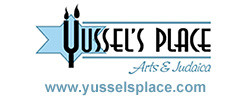High Holidays
The annual Jewish High Holidays begin with Rosh Hashanah.
The shofar is blown during services and we carry a wide array of shofars for the novice to the expert. With every purchase, we offer a complimentary shofar blowing lesson. Checklist: Candlesticks and Candles, Kiddush Cups, Challah, Challah Knife, Challah Board, Host & Hostess Gifts, Honey Pot, Jewish Calendar, Wine and Wine Recorker, Shofar, Apples and Honey, Flowers.
Rosh Hashana 2025/5785 begins the evening of Wednesday, October 2 and continues through the evening of Friday, October 4. Kol Nidre is the evening of Friday, October 11/Yom Kippur is Saturday, October 12. Sukkot begins the evening of Wednesday, October 16 ending with Simchat Torah on Friday, October 25.
